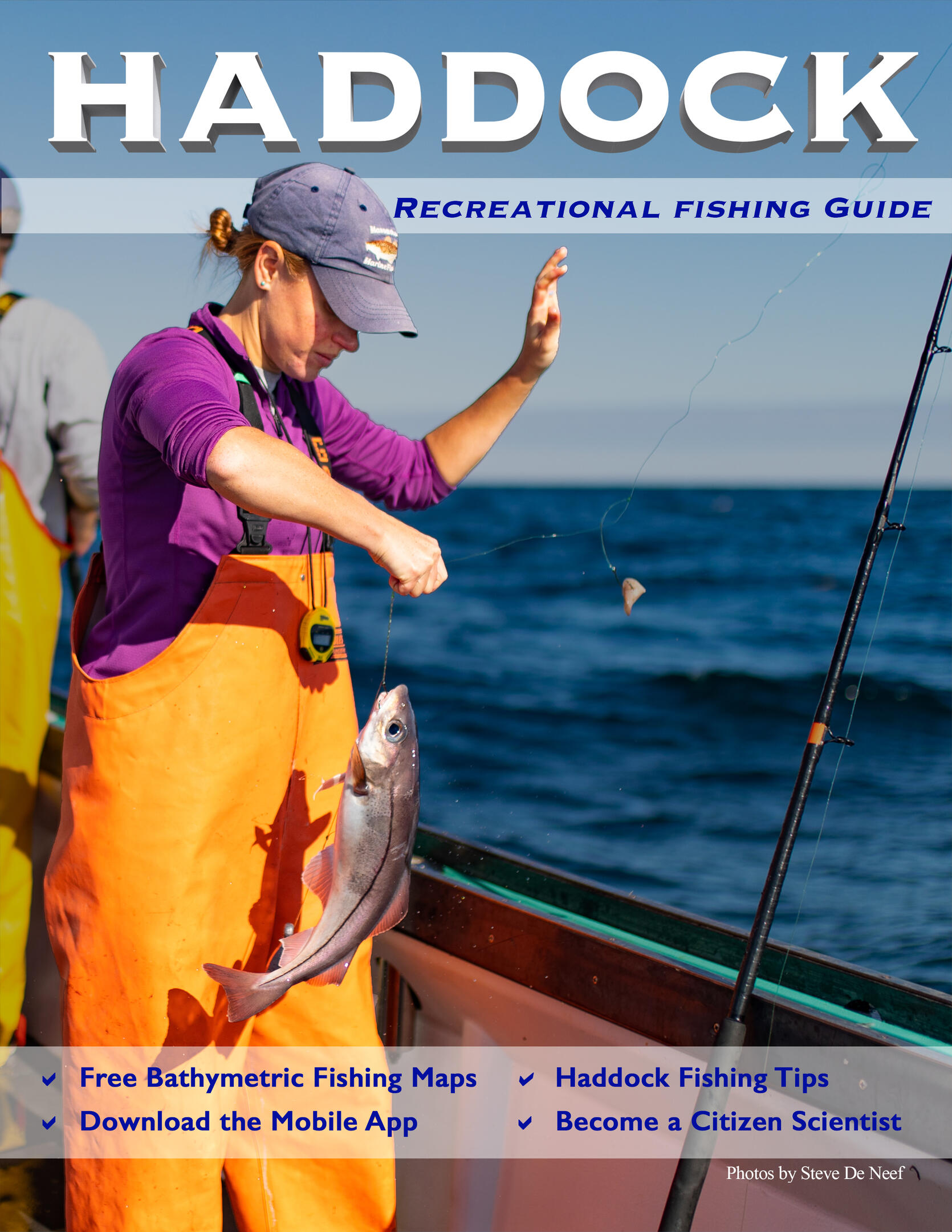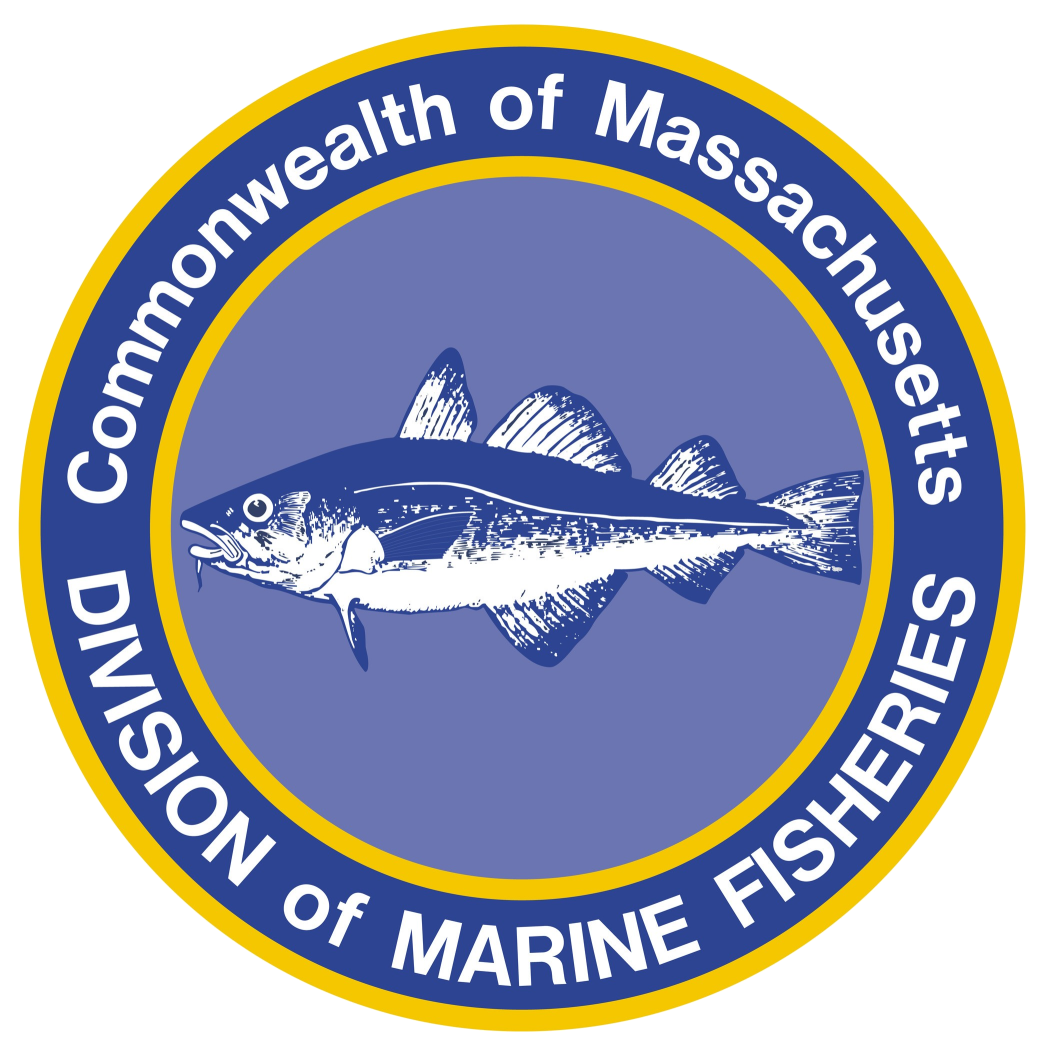- Division of Marine Fisheries

Although the haddock population in the Gulf of Maine (GOM) is at a record high, the Atlantic cod population is near an all-time low. Cod and haddock prefer similar habitats and are therefore commonly caught together, which presents a big problem.
Despite managers imposing a prohibition on recreational cod harvest, the discarded cod (“bycatch”) from haddock anglers has become a leading source of mortality for the cod stock. This has led managers to impose stricter than necessary restrictions on haddock fishing with the intention of decreasing the discard mortality of cod.
DMF has created a bycatch avoidance tool for Atlantic cod in the GOM recreational fishery, in the form of intuitive map products that identify the time and place where the catch rate for cod is low yet legal sized haddock are abundant (See DMF News Volume 43).
Our haddock recreational maps were originally based on information from a trawl survey that ended in 2019. That means they will become less useful over time as the distribution of cod and haddock change. That’s where you come in! We’re looking for anglers to voluntarily report their groundfish catch, fishing time, and locations.
Interested anglers should register as a citizen scientist. One of our biologists will follow up with further instructions. The first 100 participants will receive a pair of fishing pliers as a thank you. Each reported fishing trip will also be an entry into a drawing for a YETI cooler!
